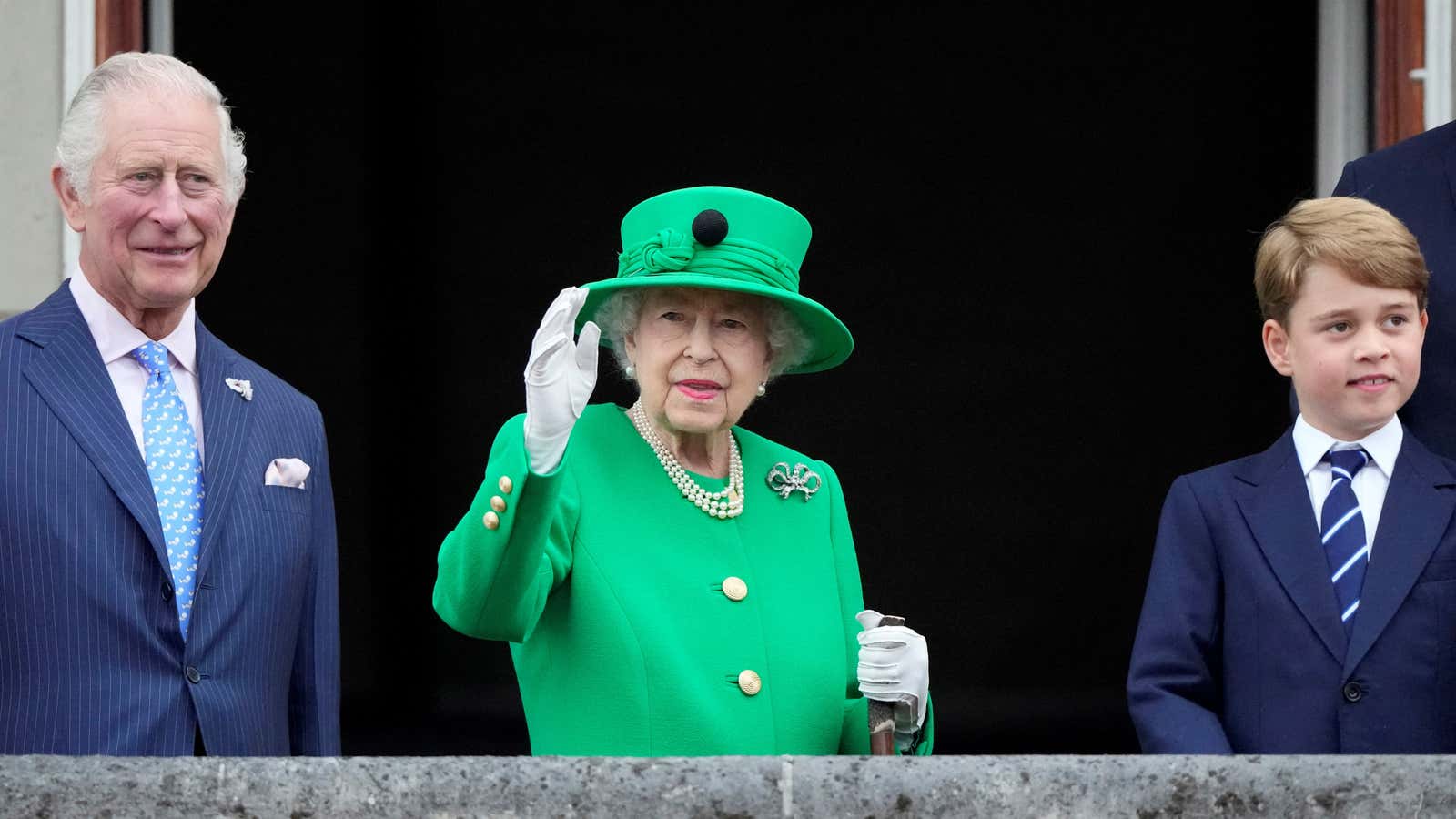During the four days of celebrations that marked the 70th anniversary of Queen Elizabeth II’s accession to the British throne, the queen herself was rarely seen. Her hologram rode a golden carriage, and Paddington Bear joined her for tea in a video, but she made only one appearance in public, waving from the balcony of Buckingham Palace.
Her greater but even less visible contribution that weekend is the result of the statistical quirks of economic calculations. The long Platinum Jubilee weekend included one public holiday, June 2, that otherwise occurs at the end of May every year. But it also included a bonus holiday, June 3. That fallow weekday will temporarily depress the second quarter’s economic output—and in all likelihood bump up the GDP in the third quarter. On paper, at least, the Jubilee celebrations may help the UK avoid a recession for the near future.
Is the UK headed for a recession?
In economics, a recession is defined as two successive quarters of negative economic growth—that is, two successive quarters of shrinking GDP. In the first quarter of 2022, the UK’s GDP increased by 0.8%, but the second-quarter figure is expected to be less rosy. In April, for instance, GDP fell by 0.3%, and over May and June, the effects of the Ukraine war, oil prices, and inflation made themselves deeply felt. Consumer confidence is low, and retail sales dropped.
For the Office for National Statistics, the Jubilee weekend’s extra holiday (or bank holiday, as it’s known in the UK) counts as an unproductive day added to this quarter’s slump. “While the ONS factors recurring bank holidays into its GDP figures, it does not adjust for extra bank holidays,” said Ruth Gregory, a senior economist at Capital Economics, a London-based research consultancy. In an impact assessment (pdf) published in February, the British government estimated the additional holiday would knock £2.4 billion ($2.9 billion) off the economy—a “sharp negative impact on output.” Gregory reckons the extra holiday “could cut GDP growth…perhaps by as much as 0.5%.” Past examples suggested this was likely too. In the second quarter of 2012, when the queen celebrated her Diamond Jubilee with a similar long weekend, the country’s GDP declined by 0.1%.
But mark the sequel. The government report pointed out that, in the past, these slumps have been inevitably followed by a “bounce-back.” (In 2012, for instance, the third quarter saw the economy grow by 1.2%.) The reasons behind this bounce-back lie, in some part, in companies working harder to make up for the lost day. But mostly, the bounce-back is a result of quarter-on-quarter growth logic. If the extra holiday has artificially dragged the second quarter’s GDP below what it would have been otherwise, that presents a lower base from which the economy can more easily “grow.” Gregory confirmed: “We expect quarterly GDP growth to bounce back in the third quarter.”
Without the Jubilee, the contraction of the second quarter would likely have been followed by a contraction in the third quarter: a recession, in other words. But if the bounce-back occurs this year as expected, it will avoid any need for the government to officially declare a recession. Unofficially, though, Britons will still feel the impacts of a huge, painful slowdown. “We are assuming,” Gregory said, “the UK economy is very close to a recession.”
